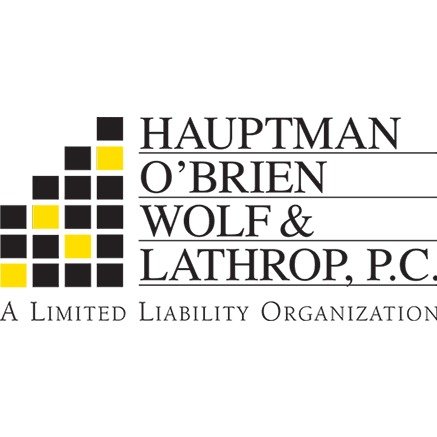Best Wrongful Death Lawyers in Omaha
Share your needs with us, get contacted by law firms.
Free. Takes 2 min.
List of the best lawyers in Omaha, United States
About Wrongful Death Law in Omaha, United States:
Wrongful death refers to a legal claim that arises when a person's death is caused by someone else's negligence, intentional act, or wrongdoing. In Omaha, United States, wrongful death laws are designed to provide compensation to the surviving family members who have lost a loved one due to such actions. These laws aim to hold the responsible party accountable and provide financial support to the survivors during their difficult time.
Why You May Need a Lawyer:
Seeking legal assistance from a lawyer is crucial when dealing with wrongful death cases in Omaha. Some common situations where you may need a lawyer include:
- If you believe that the death of your loved one was caused by another party's negligence or intentional act
- To navigate the complex legal process involved in filing a wrongful death claim
- To gather evidence and build a strong case on your behalf
- To negotiate with insurance companies or opposing parties for fair compensation
- To ensure your rights are protected and maximize the amount of compensation you may be entitled to
Local Laws Overview:
When dealing with wrongful death in Omaha, United States, it is important to understand the key aspects of the local laws. Some important points to note include:
- Wrongful death claims in Omaha must generally be filed within four years from the date of the deceased person's death.
- Only certain family members, such as spouses, children, and parents, are eligible to file a wrongful death claim in Omaha.
- Compensation in wrongful death cases may include damages for medical expenses, funeral costs, loss of financial support, loss of companionship, and emotional distress.
- Omaha follows the comparative negligence rule, which means that if the deceased person was partly at fault for the incident that caused their death, the compensation may be reduced proportionally.
Frequently Asked Questions:
1. What is the difference between wrongful death and murder?
Wrongful death is a civil claim that seeks compensation for the losses suffered by the surviving family members due to the death of their loved one. Murder, on the other hand, is a criminal offense and involves the intentional killing of a person. While both may have overlapping facts, the legal processes and objectives differ.
2. Who can file a wrongful death claim in Omaha?
In Omaha, the immediate family members, such as spouses, children, and parents, have the right to file a wrongful death claim. Other individuals, such as siblings or extended family members, may be eligible depending on the specific circumstances. Consulting with a lawyer will help determine your eligibility.
3. How is the compensation determined in a wrongful death case?
The compensation awarded in a wrongful death case typically takes into account various factors, such as the deceased person's income, their potential future earnings, the loss of companionship, and the financial impact on the surviving family members. An experienced lawyer will help calculate an appropriate amount based on the specifics of your case.
4. What is the time limit to file a wrongful death claim in Omaha?
In Omaha, wrongful death claims generally have a statute of limitations of four years from the date of the deceased person's death. It is important to consult with a lawyer promptly to ensure your claim is filed within the specified timeframe.
5. Will I need to go to court for a wrongful death case?
While many wrongful death cases are settled outside of court through negotiation or mediation, some cases may proceed to trial if a fair settlement cannot be reached. Your lawyer will guide you through the legal process and represent your interests, aiming to achieve the best possible outcome for your case.
Additional Resources:
If you need further information or assistance regarding wrongful death in Omaha, consider contacting the following resources:
- Nebraska State Bar Association - Wrongful Death Section
- Omaha County Courthouse - Civil Division
- Local legal aid organizations or nonprofits specializing in wrongful death cases
Next Steps:
If you require legal assistance in a wrongful death matter in Omaha, United States:
- Research and select a lawyer with experience in handling wrongful death cases.
- Schedule a consultation with the chosen lawyer to discuss the details of your case.
- Provide the lawyer with all relevant information and documentation related to the incident and the deceased person.
- Work closely with your lawyer to gather evidence, build a strong case, and proceed with the legal process.
- Follow your lawyer's guidance throughout the negotiations, settlement discussions, or potential trial.
Lawzana helps you find the best lawyers and law firms in Omaha through a curated and pre-screened list of qualified legal professionals. Our platform offers rankings and detailed profiles of attorneys and law firms, allowing you to compare based on practice areas, including Wrongful Death, experience, and client feedback.
Each profile includes a description of the firm's areas of practice, client reviews, team members and partners, year of establishment, spoken languages, office locations, contact information, social media presence, and any published articles or resources. Most firms on our platform speak English and are experienced in both local and international legal matters.
Get a quote from top-rated law firms in Omaha, United States — quickly, securely, and without unnecessary hassle.
Disclaimer:
The information provided on this page is for general informational purposes only and does not constitute legal advice. While we strive to ensure the accuracy and relevance of the content, legal information may change over time, and interpretations of the law can vary. You should always consult with a qualified legal professional for advice specific to your situation.
We disclaim all liability for actions taken or not taken based on the content of this page. If you believe any information is incorrect or outdated, please contact us, and we will review and update it where appropriate.











